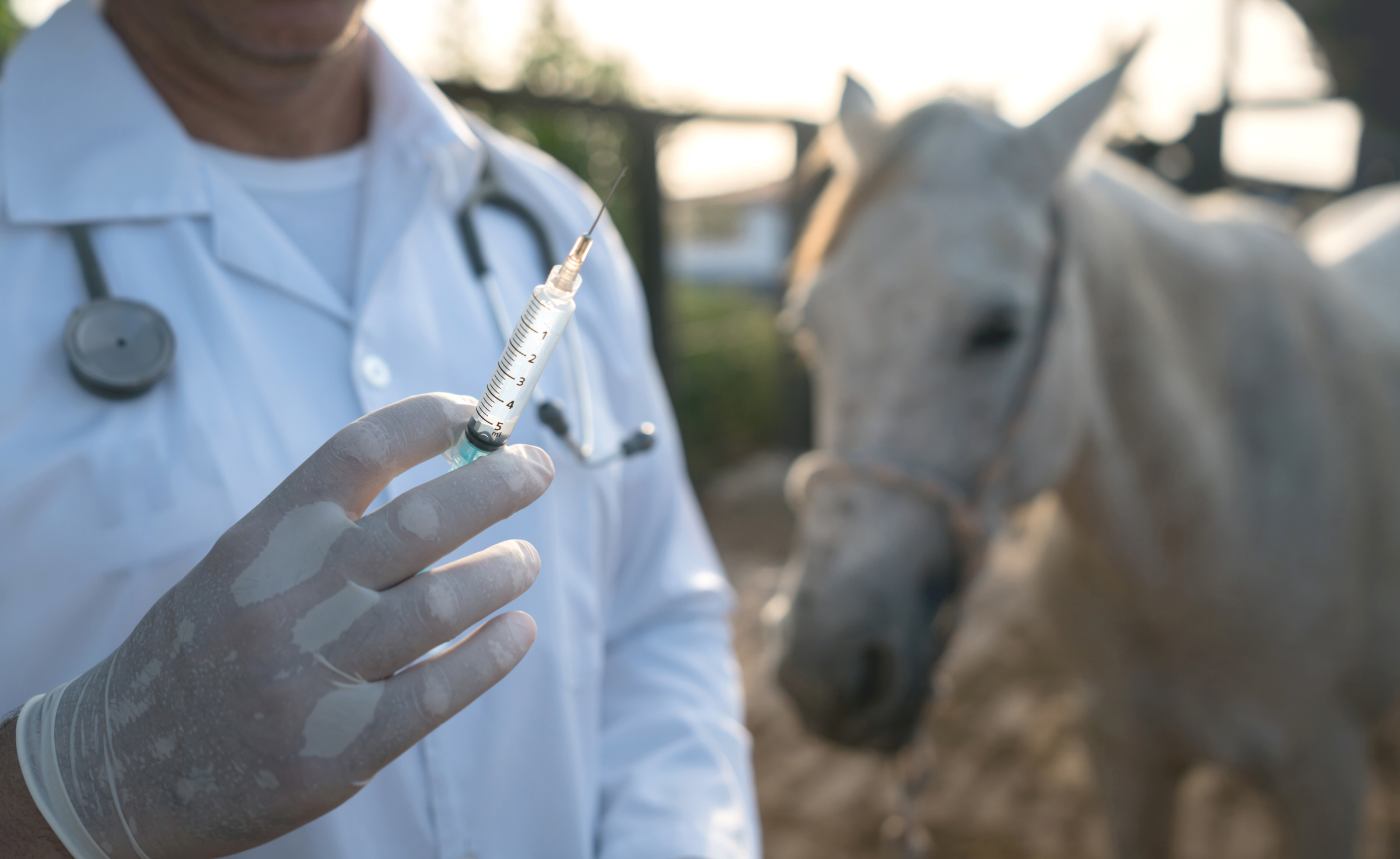
All horses are at risk for being exposed to tetanus. If your horse has exposure to soil, other animals and manure, he is at risk. Tetanus is easily transmitted, and if contracted, can be devastating to horses, with a fatality rate of 75%.1
What is Tetanus?
Tetanus is a bacterial disease caused by the invasion of Clostridium tetani in puncture wounds, open lacerations, exposed tissues or surgical incisions. Present in the intestinal tract and feces of horses, other animals and humans, the bacteria can be abundant in soil and can survive in the environment for years, creating a constant risk for horses and people. Clinical signs begin with hyperresponsiveness to noise or movement and progress to a horse having erect ears, third eyelid prolapse, flared nostrils, elevated head, stiff or erect tail, and a stiff-legged gait. Symptoms can advance to muscle spasms, convulsions and death by asphyxia.
“I’ve recently seen tetanus cases in a few horses, and it is devastating to lose a horse from a disease that is very preventable,” said Leslie Schur, DVM, Desert Pines Equine. “Whether you have a young foal, a recently purchased horse or a horse with an unknown vaccination history or a horse that isn’t current on their annual vaccinations, its risk for contracting tetanus significantly increase.”
It is crucial to work closely with your veterinarian to ensure your horse has received protection against tetanus.
Protect Your Horse from Tetanus
Tetanus is one of the five potentially fatal core equine diseases, determined by the American Association of Equine Practitioners (AAEP). The best way to protect your horse against tetanus and the other core diseases—rabies, West Nile virus, Eastern and Western equine encephalomyelitis—is through annual vaccination, as recommended by the AAEP vaccination guidelines.2 CORE EQ INNOVATOR® is the first and only vaccine that protects horses against five potentially fatal core equine diseases, including tetanus, in a single injection.
Every adult horse needs to be vaccinated against tetanus each year. Work with your veterinarian to schedule a spring wellness appointment to help ensure your horse is set up for success all year. Wellness appointments are an ideal opportunity to provide comprehensive care for your horse. In addition to vaccination against the core equine diseases, a spring wellness appointment should incorporate a dental exam for your horse to catch any potential dental problems and can lead to earlier diagnosis, treatment and improved health and wellness for your horse. A wellness check also is the perfect time to talk to your veterinarian about your horse’s individual deworming needs and have a FEC test conducted to build your horse’s deworming program.
About Zoetis
Zoetis is the leading animal health company, dedicated to supporting its customers and their businesses. Building on more than 65 years of experience in animal health, Zoetis discovers, develops, manufactures and commercializes medicines, vaccines and diagnostic products, which are complemented by biodevices, genetic tests and precision livestock farming. Zoetis serves veterinarians, livestock producers and people who raise and care for farm and companion animals with sales of its products in more than 100 countries. In 2019, the company generated annual revenue of $6.3 billion with approximately 10,600 employees. For more information, visit www.zoetisus.com.
1. MacKay R. Tetanus. In: Sellon DC, Long M, eds. Equine Infectious Diseases, 2nd ed. St. Louis, MO: Saunders Elsevier, 2007:368-372.
2. American Association of Equine Practitioners. Core Vaccination Guidelines. 2012.
https://aaep.org/guidelines/vaccination-guidelines/core-vaccination-guidelines. Accessed September 17, 2020.
This article was written by Kevin Hankins, Senior Veterinarian, Equine Technical Services, Zoetis.


